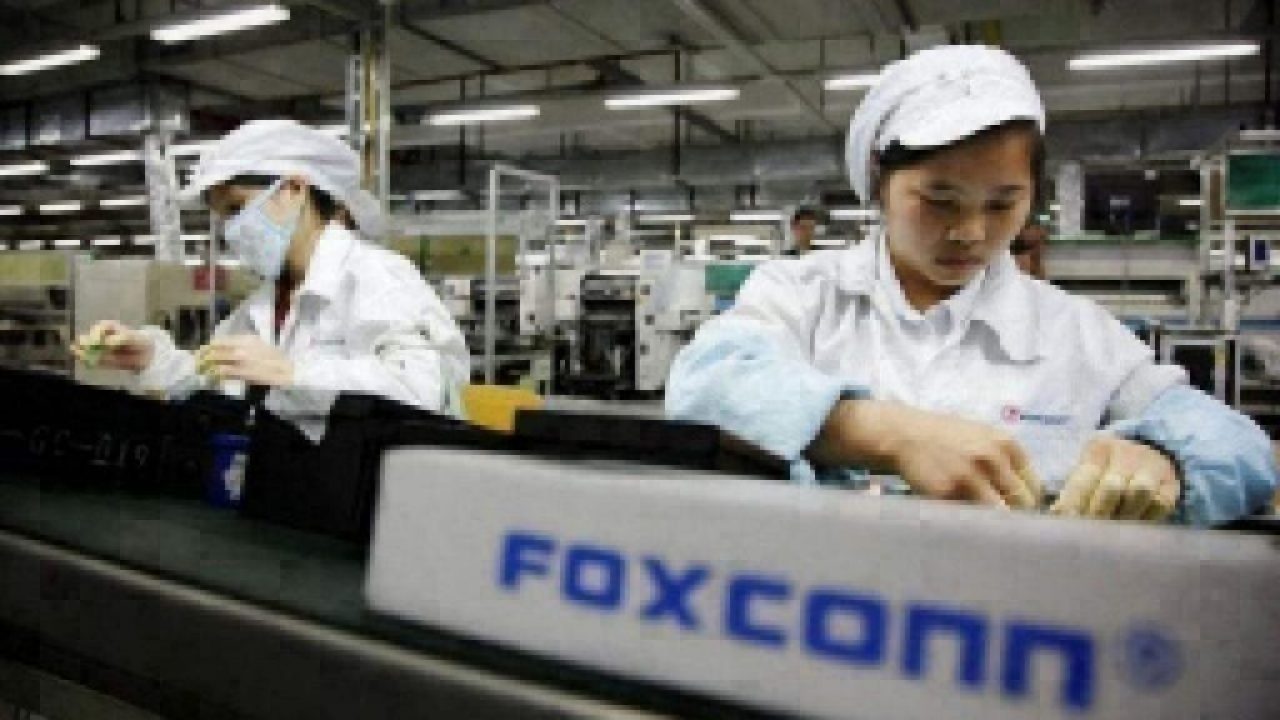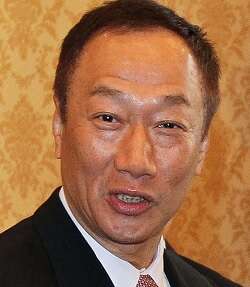Terry Gou Resigns, Sets Eyes on Taiwan’s Presidency
Article By : Alan Patterson

Terry Gou has resigned as chairman of the world's biggest electronics manufacturer to stand for election as the president of Taiwan.
Terry Gou, the founder of Foxconn and Taiwan’s wealthiest person at $7.3 billion, has resigned as chairman at the world’s biggest electronics manufacturer in order to stand for election as the president of Taiwan.
Liu Young-Way, the head of Foxconn’s semiconductor unit, will succeed Gou as chairman. The company denied media reports that it plans to shift production away from China, where Foxconn employs more than a million people assembling electronic devices such as Apple’s iPhone and iPad.
Earlier this month, Foxconn held a rare public event in Taiwan to discuss the future without Gou, who has been the driving force behind the company since he founded it in 1974, originally making plastic knobs for black-and-white TVs. Foxconn today is a global company that makes everything from connectors to LCDs and semiconductors. Its top customer, Apple, accounts for about half of the company’s production.

Recommended
Could Foxconn Boss be Taiwan’s Next President?
One person notably absent from the new management team is Sharp President Jeng-wu Tai, according to Mizuho analyst Yasuo Nakane.
Tai, a member of Gou’s inner circle, is one of the key people who has made Sharp profitable following Foxconn’s $3.5 billion acquisition of the company in 2016, according to Nakane. Sharp will remain under Gou’s overall control, a sign that Foxconn’s founder will still be a player in the electronics industry.
Sharper Focus
At the announcement earlier this month, the new management outlined the company’s medium and long-term business plans, which include more focus on products for IoT, AI, 5G equipment and 8K televisions. The new management team said they aim to improve margins, which have slumped in recent years as the Apple business wanes.
“The environment will remain tough at least through 2020,” Nakane said in a report emailed to EE Times. “The company’s direction and strategy accounts for this tough environment.” While the company has begun providing more information on products and strategy, there are still a number of questions left unanswered, Nakane said.
Up to now, the company has been notorious for its lack of transparency. As usual, Foxconn did not respond to a request from EE Times to comment in detail.
According to Mizuho’s Nakane, the key questions are how Gou will be involved in the company and whether the group will continue as a contract manufacturer or shift to providing services, software, or products under its own brand. In addition, it remains to be seen how the company, its consolidated subsidiaries and unconsolidated subsidiaries will be connected in terms of strategy and business development.
The new team will manage subsidiaries such as Foxconn Industrial Internet, supplying Apple as well as server and communications customers; Foxconn Interconnect Technology, making connectors and automotive components; and Foxconn International Holdings, the smartphone OEM unit.
However, the committee will not be involved with the overall group, which includes unconsolidated subsidiaries such as LCD makers Sharp and Innolux and smartphone operations with Nokia/HMD, which remain under the control of Terry Gou. Foxconn is making its own phones now through an investment stake in HMD, the Finnish company behind the Nokia brand of handsets. Foxconn subsidiary FIH Mobile owns 6% of HMD and makes the phones that its Finnish partner designs.
Gou’s continuing control of the Sharp and Nokia-related operations highlights his long-term interest in becoming a player in electronics brands. By relinquishing control of the contract manufacturing side of Foxconn that serves Apple, Gou may be preparing to focus more on building Foxconn’s own brands in the future.
Such a move would follow in the footsteps of other Taiwanese companies such as Acer and Asus, which years ago split their contract manufacturing and branded operations to avoid direct competition with customers such as Dell and HP.
US-China Trade War
Foxconn is one of the companies in the global supply chain that’s at risk of being caught in the crossfire of the US-China trade war.
The company said it is aware of the risks related to a prolonged trade war and is prepared to adapt to rapid changes in the business environment.
It seems confident in its ability to quickly move factories based on customer needs, according to Mizuho’s Nakane. He estimates that 75% of Foxconn’s manufacturing is in China.
At the announcement, the company demonstrated products and technology that the group has been working on in preparation for the shift to 5G and 8K. Such products include 8K TVs/electronic blackboards, server racks, 5G small cells (BBU+RRU) and semiconductors like CMOS sensors, LCD drivers, 8K TV SoCs and ARM-based SoCs.
Foxconn aims to boost profitability by leveraging big data related to manufacturing. The company is also adopting factory automation based on its proprietary technology. Those millions of workers the company employs in China may gradually be replaced with robots made by Foxconn.
Subscribe to Newsletter
Test Qr code text s ss


